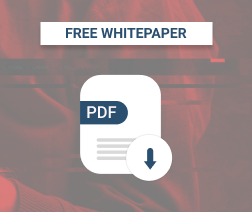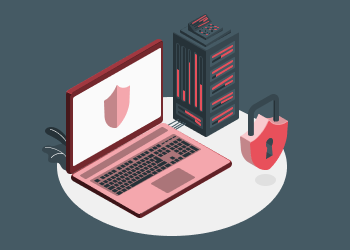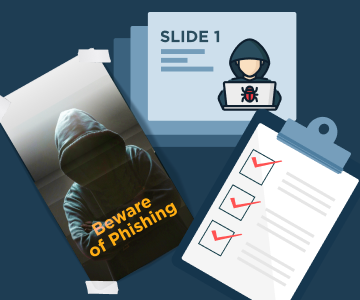The cybersecurity skills gap is one of the major factors driving continued demand for MSSP offerings. While this creates more revenue for companies delivering managed security services, it also means that these MSSPs have to develop internal capabilities and train their employees on critical cybersecurity skills needed to effectively deliver their services.
A great way to show that your MSSP has the requisite internal capabilities and expertise to securely manage clients’ IT infrastructure is by acquiring industry-recognized IT security certifications.
While there are a lot of security certifications out there, MSSPs should stick with globally recognized ones that establish their experience and proficiency in delivering in-demand security skills. Let’s take a look at some of the most relevant security certifications for MSSPs.
(You might also want to read our Providing Managed Security Guide for a better understanding of the concept of managed security services.)
Certified Information Systems Security Professional (CISSP)
A globally recognized (vendor-neutral) information security certification, CISSP is a must-have for MSSPs looking to establish and showcase their expertise in the cybersecurity space. Preparing for the CISSP exam gives employees an in-depth understanding of several domain areas and makes them become more grounded security professionals. With this, they are better able to design, implement, and manage secure IT architectures for businesses in various industries.
IT professionals who hold the CISSP are usually well-versed in all or some of the following areas: communications and network security, software development security, security assessment and testing, security operations, identity, and access management, asset security, security architecture, and engineering, and security and risk management.
Certified Information Security Manager (CISM)
This is a high-level credential for IT professionals tasked with developing and maintaining secure systems for enterprise-level applications. They are also responsible for developing best practices and procedures for maintaining the security posture of client organizations.
Not only does the CISM certification demonstrate the technical ability of your personnel to manage information security programs but it also helps establish a thorough understanding of business and enterprise objectives. A CISM certification affirms the proficiency of IT security professionals in incident management and response, IT governance, security risk management, and program development/management.
SANS GIAC Security Essentials (GSEC)
A globally recognized entry-level certification offered by GIAC, GSEC helps validate an IT professional’s understanding of information security terminology, concepts and technical skills needed for hands-on security job roles. GSEC is valid for four years and demonstrates the proficiency of your employees in network protocols, public key infrastructure, network mapping, ICMP, DNS, IPv6, access controls and authentication and cryptography fundamentals.
Certified Ethical Hacker (CEH)
To mitigate the information security threats represented by black hat hackers and state actors, IT security professionals need to precisely pinpoint the vulnerabilities in an IT infrastructure and the techniques used to exploit them. In other words, they need to think like hackers.
The process of acquiring a CEH (Certified Ethical Hacker) certification imbues IT professionals with the skills to detect vulnerabilities and implement proactive measures to prevent unauthorized access to network and information systems. The CEH certification affirms a security professional’s proficiency in hacking practices like denial-of-service attacks, social engineering, Trojans, sniffers, hacking web servers, worms and viruses, SQL injection, etc.
CompTIA Security+
Obtaining the CompTIA Security+ certifications enables IT professionals to join the ranks of cybersecurity experts with the technical skills, in-depth knowledge and well-rounded experience in several security-related disciplines. These disciplines include network access control, security systems, security infrastructure, security risk identification and mitigation, identity management, threat management, and cryptography. Since CompTIA Security+ complies with the ISO-17024 and has the approval of the U.S. Department of Defense, this certification is a must-have for MSSPs.
Certified Information Systems Auditor (CISA)
Professionals looking to validate their expertise in handling information security audit control and assurance should obtain a CISA certification. It is a globally recognized certification that demonstrates your employees’ skills and experience in auditing, compliance reporting, and instituting effective information control measures within organizations.
GIAC Certified Incident Handler (GCIH)
This certification helps MSSPs understand the various attack tools, vectors, and techniques used by hackers. This enables them to better detect, respond, and resolve cybersecurity incidents. A broad spectrum certification like this provides your employees with the knowledge and confidence to come up with the appropriate response to threats and security breaches.
Wrapping Up
When looking to engage the services of MSSPs, clients almost always check the amount of expertise and experience as part of due diligence. They prefer companies that are proficient in securing the kinds of technical products they use, understand how to secure both on-prem and cloud environments, and understand how information security impacts business processes and operations.
MSSP personnel should be trained on how to detect, resolve, and prevent cyber threats to enterprise information assets. By acquiring these cybersecurity certifications, MSSPs can build better security offerings, increase their client base, and capitalize on an evolving threat landscape to increase revenue levels.
However, learning and skills acquisition is a continuous process (especially in the rapidly evolving field of information security) and shouldn’t end after acquiring these certifications. MSSPs must stay ahead of the curve by regularly consuming security-focused publications and keeping up with changing trends in the cybersecurity space.






